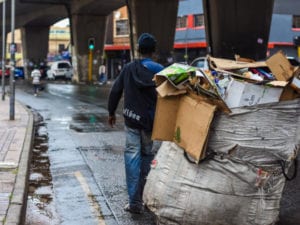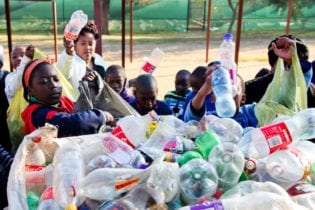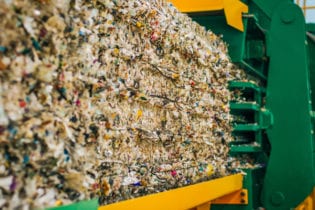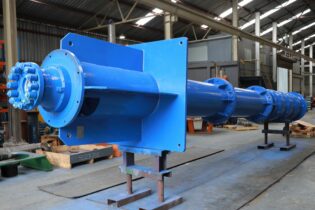A group of about 50 Gauteng-based waste reclaimers have reportedly collected 700,000kg of plastic recyclables and covered more than 20,000km in almost nine months.
This is according to a project supporting this informal industry. Informal waste reclaimers play a vital role in South Africa’s recycling value chain – accounting for the collection of more than half of all post-consumer paper and packaging in South Africa, according to the Council for Scientific and Industrial Research (CSIR). The reclaimers earn a living collecting, sorting, and selling kerbside waste and help to divert millions of tonnes of paper and packaging waste away from municipal landfills. They have saved the economy an estimated R950 million.The Urban Surfer project supports informal waste reclaimers with equipment, health and safety training, personal protective equipment (PPE), and public awareness programmes through partnerships with the private sector. Since November 2021, the Urban Surfer initiative has been tracking 50 waste reclaimers in Gauteng.
Data obtained from tracking each trolley, equipped with a small battery-powered GPS that operates on cellular 2G networks, helps identify hotspots for garbage retrieval and can play a role in the country’s Extended Producer Responsibility regulation. Over a period of nine months, 50 of these waste pickers collected 700,000kg of plastic recyclables worth around R1.4 million, and covered a distance of 20,000km. “We aim to improve working conditions, create awareness around the value informal reclaimers bring, and change policy to increase our waste reclaimers’ earning potential,” said John Kullmann, Urban Surfer’s head of design and development. “Our goal is to have as much coverage in residential areas as possible, as the reclaimers who collect waste in the suburbs are able to collect more recyclables than those in Alex. By deploying more trolleys into those focus areas, Urban Surfer is maximising its impact,” said Kullmann.






